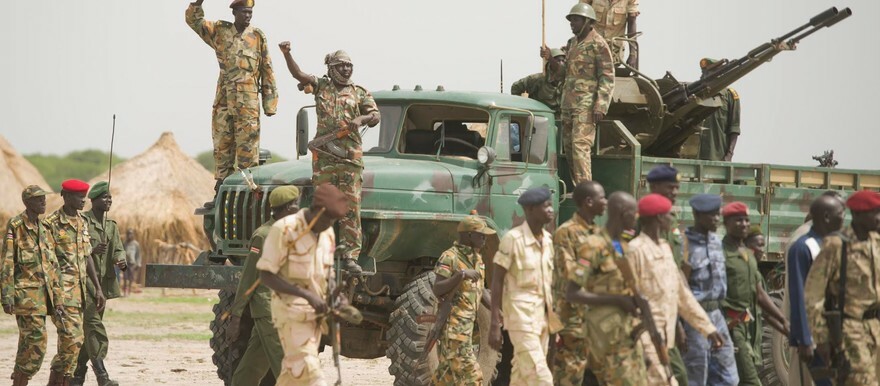The South Sudan Disarmament, Demobilization, and Reintegration Commission (DDR) has said that the United Nations still maintains the South Sudan People’s Defense Forces (SSPDF) on its blacklist due to ongoing child recruitment within the army.
This revelation was made during the launch of a two-day workshop on child protection, organized jointly by the commission and the United Nations Mission in South Sudan (UNMISS) in Torit, Eastern Equatoria State.
The international community recognizes the Optional Protocol to the Convention on the Rights of the Child on the Involvement of Children in Armed Conflict (OPAC), which prohibits the conscription of children under the age of 18 into the military. Despite these international norms, thousands of children continue to be involved in active armed conflicts in various African and Middle Eastern nations.
According to the South Sudan country office of World Vision, it was estimated that between 7,000 and 19,000 child soldiers were present in South Sudan as of February 2021.
The workshop convened nearly 30 members of civil society organizations (CSOs) involved in child protection. Discussions centered on the mandates of child protection units, the six grave violations against children, South Sudan’s comprehensive action plan, the challenges it faces, and the roles of CSOs in safeguarding children.
Oringa John Baptist, the Eastern Equatoria State chairperson for the state Technical Committee of the National DDR Commission, acknowledged that war has persisted for a prolonged period in the world’s youngest nation, resulting in the continuous recruitment of children into armed conflicts.
He expressed the need to end this practice and stated, “Our national army is on the United Nations Secretary-General’s blacklist, which indicates that South Sudan is recruiting children. To rectify this, we need to organize ourselves so that our name is removed from this blacklist.”
Meanwhile, Francis Ojok Laboke, the Acting Coordinator for the DDR Commission in Eastern Equatoria State, underscored the challenges in eliminating child soldiers in South Sudan. He mentioned the recurring conflicts within the country as a significant obstacle to progress, saying, “You want to progress, but again you see rebels in the bush, and they come with new issues. Soon you find children are continuously being recruited into the armed forces. Children are not soldiers; it is you CSO’s who have a collective responsibility to campaign to end the recruitment of child soldiers.”
He emphasized the critical nature of addressing the issue, particularly as the country moves towards the establishment of cantonments for armed groups.
Jennifer Nabongirka Edward, the Eastern Equatoria State minister for Gender and Social Welfare, has acknowledged the presence of child soldiers in the army but expressed doubts about how to resolve this issue. She emphasized the need for collaboration from all stakeholders, including parents, to end child recruitment in the army and address the issue of street children in the state.
“We have both children on the streets and children who are soldiers; they are vulnerable. However, we often wonder how we can resolve these problems, both concerning street children and those in the army. In the case of child soldiers, we must be astute and ask: who is responsible for their recruitment? Sometimes, it’s the parents who are soldiers themselves. They recruit their own children who are born while their parents are in the army, and these children grow up within the army, eventually becoming part of it,” Minister Nabongorika points out.
She raised a critical question for the DDR and partners collaborating with civil society organizations (CSOs) in addressing the issue of child soldiers and recruitment into the army: “How can you halt the recruitment of child soldiers when their parents are soldiers, and their homes are located within army bases like Owinykibul? These children were born and raised in these military environments, and it’s where they call home.”
“In this situation, the challenge lies in how to remove these children from the army, considering they have homes within the barracks and their families reside there. Is it solely our responsibility because it’s our mandate? When we discuss child protection, it’s important to note that there are also many street children in the markets. Instead of solely conducting workshops, we should actively support these children. The state government requires assistance from development partners to effectively address the issue of street children,” Jennifer emphasized.




